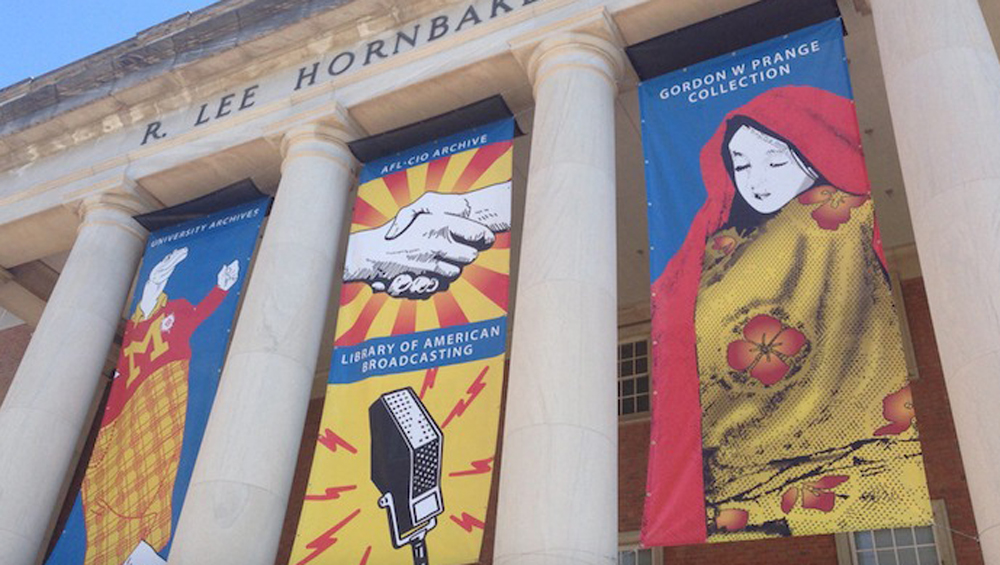
Library Of American Broadcasting: Exploring The Troves Of An Industry Treasure


Mary Collins
Did you know that the first presidential election results were broadcast on Nov. 2, 1920? This was a bit of an experiment by radio station KDKA in Pittsburgh. The part of the broadcast that really caught my attention was when the announcer asked listeners to send in postcards so owner Westinghouse could determine the signal’s reach. Only 40 years later, on Sept. 26, 1960, the first live presidential debate was telecast from Chicago. You can recreate the experiences shared by audiences for both historic events by opening digital files from the Library of American Broadcasting, now housed by the University of Maryland.
Library Of American Broadcasting — Preserving The History Of Broadcasting And Electronic Arts
If you are interested in the history of broadcasting in the United States, the library is worth at least a virtual visit. The radio clip I referenced above is highlighted as part of the online feature dedicated to “Election Results Coverage: Through the Years.” It tells the story of the evolution from that nascent broadcast in Pittsburgh to today’s 24-hour electronic news cycle, which includes everything from broadcast radio and television to digital and social media.
Another related, but slightly different, digital feature is that for “Broadcasting at Presidential Inaugurations.” Audio clips include inaugural addresses from John F. Kennedy and Richard M. Nixon. Video assets cover everything from venerable NBC news anchors Chet Huntley and David Brinkley at Kennedy’s inauguration to the parade for Nixon on Jan. 20, 1969.
As we all know, Nixon’s second term in office didn’t go as planned. The Library has a special digital collection dedicated to “An American Presidency in Crisis: Richard Nixon and the Watergate Scandal.” The text introducing the digital exhibit comments that the voice cuts included from Oct. 22, 1973, “sound remarkably similar to statements being made by government officials” in response to some of the actions of our former president.
Two of the featured digital collections focus specifically on race and civil rights. “From Amos ’n’ Andy to Civil Rights: The Inclusion of Blackness in Commercial Radio Broadcasts” is a compilation of historical radio representation of Black Americans. The earliest recordings are from the late 1920s. The exhibit’s curator comments that at the time, “Race was a subject for white entertainment and little more.” The 11 digital pieces included start with 1929’s Amos ’n’ Andy, span four features from the 1940s, a 1956 piece on the Montgomery Bus Strike, and five stories from the 1960s, ending with the assassination of Dr. Martin Luther King Jr. Accompanying the exhibit is a well-researched list of additional online resources.
The coverage of the death of Dr. King on April 4, 1968, is the subject of the second civil rights feature. The clips included are intended to show how the day’s coverage evolved as broadcasters uncovered additional information.
The digital collection itself is quite large, and what I’ve just outlined is a fraction of what’s available online. Other exhibits cover: the Apollo 11 mission and moon landing; historical documents related to the Cable Act of 1992 — the law that created retransmission consent and must-carry; a thoughtful look at the ways media coverage can shape public perception of a public demonstration — “Anarchy or Activism: Demonstrations and the Media”; “Early Women in Broadcasting”; and an analysis of radio broadcasts during WWII and how the reports could be used as another weapon of war. Two others that fascinated me are a look at how the writers for popular AMC series Mad Men used the library’s resources to recreate the reporting on the Cuban Missile Crisis for the series’ season two finale and, the newest addition to the digital collection, “Have You Tried Wheaties?: The Lost Art of Jingle Writing.”
The Library of American Broadcasting was dedicated as the Broadcast Pioneer Library (BPL) in 1972. It had been founded by the Broadcast Pioneers Educational Fund. The collection itself is the result of volunteer work done by a number of veteran broadcasters who wanted to preserve the medium’s early history. Among those was Joseph Baudino, who spent nearly 50 years working for the Westinghouse Broadcasting Co. He and his former Westinghouse colleagues donated their personal papers and other items to the library, then housed at the National Association of Broadcasters. The Library moved to its current location — the Hornbake Library at the University of Maryland in College Park — in October of 1994.
The digitized collection, the pieces available online, are a miniscule portion of the Library’s overall holdings. I had the opportunity to visit the physical library over the summer and was amazed by its depth and breadth of assets. I saw shelves and shelves of books from the earliest days of broadcasting, many physical items including rare old televisions, studio microphones, reels of magnetic wire recordings and early film and video recordings. The collection also includes boxes and boxes of papers — everything from scripts and personal files to magazines and even archives of headshots from now-shuttered industry periodicals.
The majority of the curating and preservation work of the library is funded by the Library of American Broadcasting Foundation (LABF). LABF’s mission is to raise funds for the library, while raising its profile and seeking out new collections for its shelves, and expanding what’s available digitally. It also celebrates the men and women who have led the way in electronic media over the years. The foundation’s volunteer board includes many well-known leaders from the industry (in full disclosure, I am the foundation’s treasurer.)
Giants of Broadcasting — Luncheon On Nov. 15
LABF’s primary source of income is its annual Giants of Broadcasting and the Electronic Arts Award Luncheon at which the foundation honors “the distinguished individuals who have been the creators, innovators, journalists, leaders, performers and producers that have brought the electronic arts to the prominence they occupy in the United States and the world today, and who have set the stage for the future.” As LABF has no staff, it produces the event in conjunction with IRTS (International Radio and Television Society Foundation).
This year’s luncheon will be held on Tuesday, Nov. 15, at Gotham Hall in New York City. The confirmed honorees are outstanding. They include: TV Chef Julia Child (who is being recognized posthumously); Deborah A. McDermott, CEO, Standard Media Group; Sean McManus, chairman, CBS Sports; S. Epatha Merkerson, Emmy, Golden Globe, NAACP and SAG award-winning actress, Chicago Med, Law & Order; Bob Pittman, chairman & CEO, iHeartMedia; Adam Symson, president-CEO, The E.W. Scripps Co.; Bayard “Bud” Walters, president, Cromwell Group; Pete Williams, NBC justice correspondent (recently retired); and Fareed Zakaria, anchor, author and columnist for CNN and The Washington Post.
Please help the foundation recognize these industry Giants and support the library’s mission by registering to attend now. Or, if you cannot join us in person, consider making a donation to the foundation itself. Either way, you will be contributing to the preservation of electronic media’s history for future generations.
And, if you find yourself in the area of College Park, Md., I urge you to make a point of visiting the Library at the University of Maryland. If you are like me, you will find yourself fascinated by what you can see and learn.
Former president and CEO of the Media Financial Management Association and its BCCA subsidiary, Mary M. Collins is a change agent, entrepreneur and senior management executive. She can be reached at [email protected].
































Comments (1)
ann5 says:
March 17, 2023 at 8:55 pm
Hello. I do not consider myself a professional in writing research papers, theory has always been difficult for me. But I know where to turn if I need an assistant for a research proposal . Professionals with proven research experience and degrees in a particular field. I think it’s okay to use professional research proposal writing services. They have affordable prices. Consult and contact experienced professionals when needed.